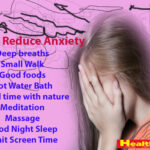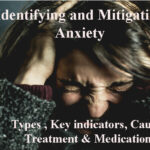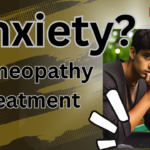Stress management during COVID-19 is very essential for a good well-being. Stress is a response to a lack of stability between demands placed on the individual and their ability to meet the demands, which, over a period of time, leads to ill-health (Palmer, 1989).
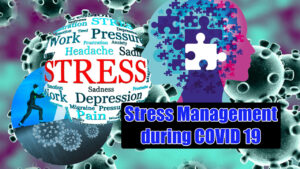

Despite the reactions being normal, managing these reactions helps in feeling better, reestablishing a sense of control, improving productivity, strengthening the immune system, reducing negative chronic health outcomes, and enhancing the ability to manage unexpected or new stress sources (Nguyen et. al, 2020). Evaluating the situation in a realistic way when setting precautions, maintaining a healthy lifestyle, gathering facts from reliable sources, reducing exposure to media, and limiting contact with stress sources are general guidelines of stress management during this time (WHO, 2020).
FACE COVID is a mnemonic guideline for managing mental health involving: focus on what is in your control, acknowledge your thoughts and feelings, come back into your body, fully engage with what you are doing by following the simple grounding exercise explained below, take committed action using your values, identify resources, open up and allow yourself to be alright with the difficult feelings, and disinfect while maintaining distance (WHO, 2020).
Grounding Exercise:
(1) First seat yourself comfortably.
(2) Take notice of 3-4 things you can see and describe them in your mind.
(3) Then notice 3-4 things you can hear, again describing them in your mind.
(4) Do this for 3-4 things you can smell, then for 3-4 things you can taste.
(5) Finally, direct your entire attention to the activity.
(6) Repeat the set 2-3 times (WHO, 2020).
Pause Exercise:
(1) First, seat yourself comfortably with feet on the floor, hands on the lap, and eyes closed.
(2) Think, feel, body: notice your thoughts, if they are negative or positive. Then notice how you feel emotionally, and finally, notice how your body feels. Look for tension or soreness.
(3) Focus on your breath: listen to your breathing. You can place your hand on your abdomen.
(4) Coming back: notice once more how your body feels and then the sounds in the room.
(5) Reflecting: think about how you feel now that the exercise is over and when you are ready, open your eyes (WHO, 2020).
Lifestyle and Routines:
Focus on prevention: set up stable household routines for meals, classes, work, and other activities. Limit screen time and exposure to media and news: setting boundaries prevents the situation from becoming overwhelming (McGuire, 2020). Daily routines have a healthy impact on thoughts and feelings (APS, 2020). The basics of household stress management are: daily routines, healthy meals, physical exercise (walking, stretching, yoga), adequate sleep, and doing things you enjoy (APS, 2020).
Knowledge from reliable sources reduces worry and panic and can help decide plans of action (McGuire, 2020).
Working and Studying from Home:
When working or studying from home, clarify the roles and routines of every family member. In situations of distress, focus on developing a practical solution (APS, 2020). Every morning, change into your work clothes, use a dedicated workspace, separate your work from home life at the end of the day, and limit distractions so you can complete work, classes, and house chores on time. Managing disappointment, changing expectations, and setting routines are important steps for both study and work-related stress.
Parenting and Stress:
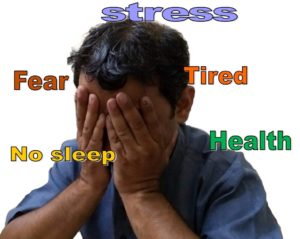

Children may be upset or confused by the situation, and may seek more attention. They may be more demanding, so make time for playing or other fun activities since children need a safe and supportive environment for healthy development (ICRC, 2000).
Mindfulness and Grounding:
Mindfulness and grounding techniques reduce stress in difficult situations and are easily doable through sitting silently and focusing on both breathing and the senses, (McGuire, 2020). Mindfulness, guided meditation, deep breathing, and relaxation exercises ease the body. These exercises are free and can be found on YouTube and other apps.
Physical Health and Diet:
Physical health management is crucial: avoid caffeine, exercise, and other stimulating activities towards the end of the day. Healthy meals provide ample nutritional value and influence stress levels.
Mindfulness and Grounding:
Shift your perspective: reflect on your thinking and question your negative thoughts. Are you overestimating the negative consequences and underestimating your ability to handle the situation?
Reflect on how you have handled crises in the past, acknowledge your current feelings, and rethink the situation: what is within your control and what helpful thing can you do right now? This helps you look at the situation realistically in order to decide on effective strategies of action. Shift your perspective to focus on activities you can do at the moment.


Annie James
MSc Psychology, Counselor
Basavangudi, Bengaluru, 560004
Mob: +91 9686543912, Email: work.anniej@gmail.com




